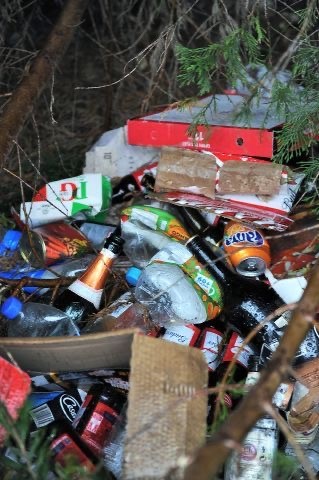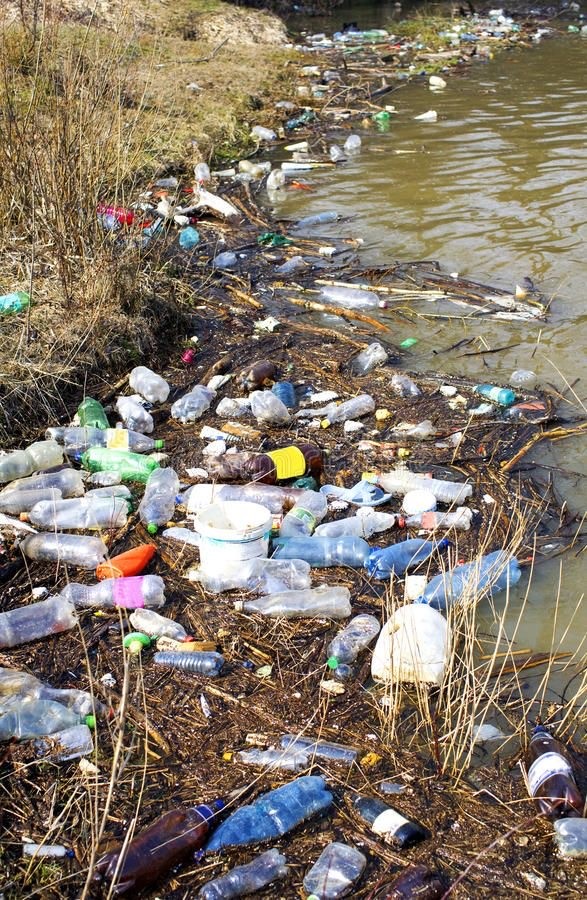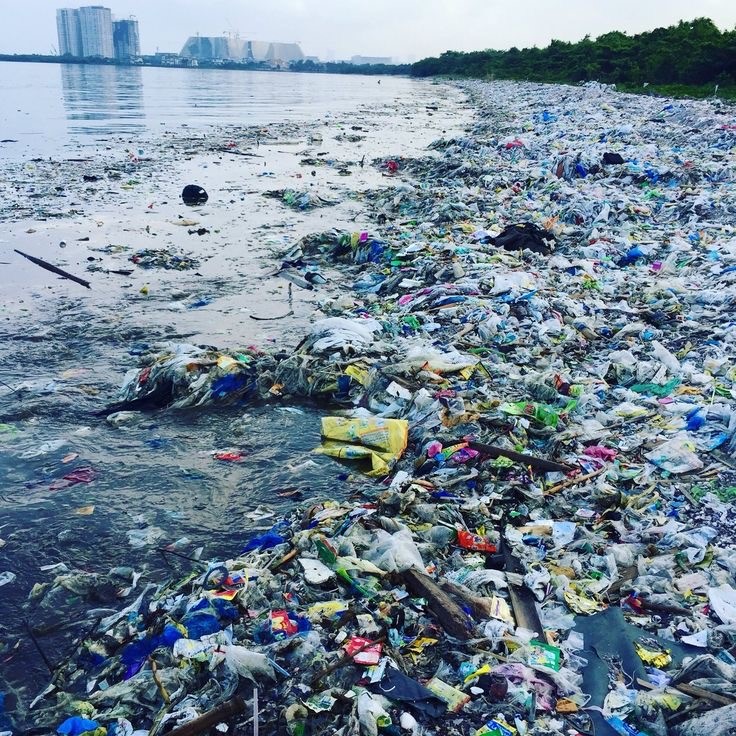Environmental degradation due to plastic pollution is a significant issue with global consequences for many years. Due to the massive increase in plastic manufacture and consumption, plastic garbage has accumulated in landfills, waterways, and even isolated habitats. The inability of plastic to decompose is the source of the environmental concern.
A prevalent disposable mentality and inadequate collection infrastructure are major causes of plastic pollution in Nigeria. The amount of plastic garbage created is growing, and the current waste management systems frequently find it difficult to keep up. In various locations, improper disposal methods, such as open dumping and burning, stem from deficient garbage collection systems. As a result, the problem of plastic pollution is made worse since a large amount of plastic garbage are found in landfills, waterways, and other natural habitats.
Informal waste collectors, also known as scavengers, are essential to the waste collection process. However, they encounter several difficulties, including a lack of safety gear, low pay, and insufficient recognition for their labour. Waste collection is inefficient as a result of the informal garbage collectors’ incomplete integration into the official waste management system. Their selective attention to collecting marketable goods, such as plastic bottles, while frequently ignoring other types of plastic waste, is indicative of this.
Owing to a culture of convenience and rampant consumption, Nigeria, like numerous other countries, has experienced a significant increase in the utilization of disposable plastics. Products like sachets, water bottles, food packaging, and single-use shopping bags have become ingrained in various aspects of daily life. These products are regularly employed and subsequently discarded as waste, primarily due to their easy availability and low cost.

The lack of easily accessible and affordable alternatives perpetuates the culture of single-use items. For instance, because of their usefulness and convenience, sachets carrying water or other beverages continue to be widely used, particularly in areas with limited access to the clean drinking water.
Approximately 14 million tons of plastic find their way into the ocean annually. As with other forms of pollution, the effects of plastic pollution on the ecosystem endanger human health, food security, tourism, and climate change, among other things. Inadequate plastics disposal on land leads to landfills, which have negative health effects. The problem is made worse by the fact that only 9% of plastic is recycled and 79% of plastic wastes away in landfills or the environment.
These waste sites turn into mosquito breeding grounds, and mosquitoes transmit malaria, which is a major cause of death in Africa. Incineration of plastics is a prevalent practice in places like Nigeria. This behaviour puts hazardous chemicals into the air, which when inhaled, can cause respiratory difficulties. Proximity to these disposal sites and landfills poses health risks for nearby residents.
Plastic is also consumed in micro and nanoform through cooking utensils. Plastics in the natural environment gradually break down into smaller particles, ultimately forming micro- and nanoplastics that are widespread in the surroundings.
Pregnant women and their foetuses suffer increased risks, such as premature birth, asthma, leukaemia, and lung cancer. The Life Saver Project, a maternity-focused organization, underscores how a woman’s lifelong exposure to plastic toxicants can be transmitted to her unborn child through breastfeeding during and after pregnancy.
Plastic pollution poses a significant threat to remote communities relying on rivers, lakes, and the ocean for clean water, impacting the marine ecosystem profoundly. Plastic pollution of various water sources may result in chemical ingestion.
When living organisms especially marine animals ingest microplastics, it may cause endocrine disruption and increase the risk of cancer. The incorrect handling of plastic bottles results in additional damage to natural habitats, including mangrove forests, seagrass meadows, and coral reefs. As marine species die from plastic poisoning, upsetting the ecosystem, this environmental imbalance gets worse.

In Nigeria, the compounding factors of inadequate education and a struggling economy heighten environmental concerns. The nation grapples with various pollution sources, with plastic, primarily in the form of plastic bottles, being a pervasive contributor to land degradation.
Mr. Olalekan Adio, an environmental specialist, stressed the urgent need for the federal government to solve the nation’s growing plastic pollution problem. He emphasised the connection between environmental damage and plastics, which are derived from fossil fuels like gas, oil, and coal. In landfills, plastic garbage releases methane and carbon dioxide, which fuels global warming and climate change. To lessen the effects of this, Adio urged Nigerians to use less plastic.
Recycling emerges as a viable solution to alleviate Nigeria’s plastic pollution crisis. Since recycled plastic can be used to create new items, this method minimizes the volume of waste in landfills and the environment. Recycling lessens the need to produce new plastic, so consuming less energy and resources. It also reduces waste management costs, promotes the development of jobs in the recycling industry, and makes money from the sale of recovered products.
Another avenue to tackle plastic pollution is through reselling. Rather than discarding plastic bottles, they can be resold to companies for repurposing. Selling recycled materials does not only contribute to the Nigerian economy but also addresses the challenge of collection and cleanup. Recycling agencies collect and process materials like plastics, paper, and metals, selling them to manufacturers for new product creation. This approach minimizes landfill waste and preserves natural resources.
The recycling and reselling industry gives rise to a new workforce known as treasure hunters, contributing both to environmental well-being and economic improvement.
Employing reusable containers, bags, and water bottles can help cut down on plastic consumption, which is another way to fight plastic pollution. Apart from the advantages for the environment, this change generates jobs, especially when switching to biodegradable materials,
Which helps reduce unemployment in Nigeria.
Emphasising the recycling of plastic bottles can significantly improve addressing environmental challenges and encouraging sustainable behaviours. As a result, there is less plastic waste in landfills and other natural areas, which lessens the impact on the environment. Redirecting plastic bottles from conventional disposal methods not only relieves the load on landfills but also enhances land quality, safeguards soil and groundwater, and releases fewer harmful gases as they break down.
Furthermore, recycling reduces the need for virgin resources like natural gas and petroleum, which helps to preserve resources. Recycling uses a great deal less energy than producing new plastic, which reduces greenhouse gas emissions associated with energy production. This comprehensive strategy underscores the financial and environmental benefits of recycling programs while contributing to the battle against climate change and air pollution.

Conventional disposal methods, such as incineration of plastic bottles, contribute to air pollution and health risks by releasing toxic pollutants like dioxins and greenhouse gases. Opting for recycling over incineration is pivotal in reducing the emissions of hazardous pollutants and fostering environmental well-being.
Transforming plastic bottles into useful products aligns with the circular economy strategy, promoting sustainable development and decreasing the overall environmental footprint. Shifting away from the linear ‘take-make-dispose’ model preserves resources in the long term and advances a more sustainable society.
Recycling plastic bottles is important for society even outside of health advantages. Creating job opportunities throughout the recycling process generates economic possibilities and supports both local and national economic growth. Investing in recycling centres and associated businesses promotes innovation and entrepreneurship in addition to increasing employment. This boosts competitiveness and economic growth by encouraging the development of new companies,
Markets and technology.
Initiatives for recycling plastic bottles also foster environmental consciousness among the local population. People learn about trash management and the benefits of recycling through community involvement, educational initiatives, and awareness campaigns. This promotes responsibility, community pride, and collaboration, all of which help to create a cleaner and healthier environment.
The pursuit of income through plastic bottles signifies a commitment to sustainability and social responsibility. A more sustainable and circular economy is fostered by businesses that prioritise recycling and use recycled materials in their products. Long-term sustainability and competitiveness are ensured by this moral strategy, which also improves their reputation, draws in environmentally sensitive consumers, and creates favourable brand connotations.
It is relieving to acknowledge that despite the ongoing challenge of plastic pollution, Nigeria inches closer to becoming a cleaner and healthier nation, thanks to the endeavors of individuals recycling plastic and those reselling and repurposing items.
Sources
- https://theconversation.com/plastic-pollution-in-nigeria-whose-job-is-it-to-clean-up-the-mess-196020#:~:text=Nigeria%20is%20estimated%20to%20generate,by%20the%20end%20of%202050.
- https://www.ncbi.nlm.nih.gov/pmc/articles/PMC7530290/
- https://theconversation.com/plastic-pollution-in-nigeria-is-poorly-studied-but-enough-is-known-to-urge-action-184591
- https://www.plasticresale.com/
- https://smallbusiness.chron.com/make-money-plastic-bottles-12391.html




